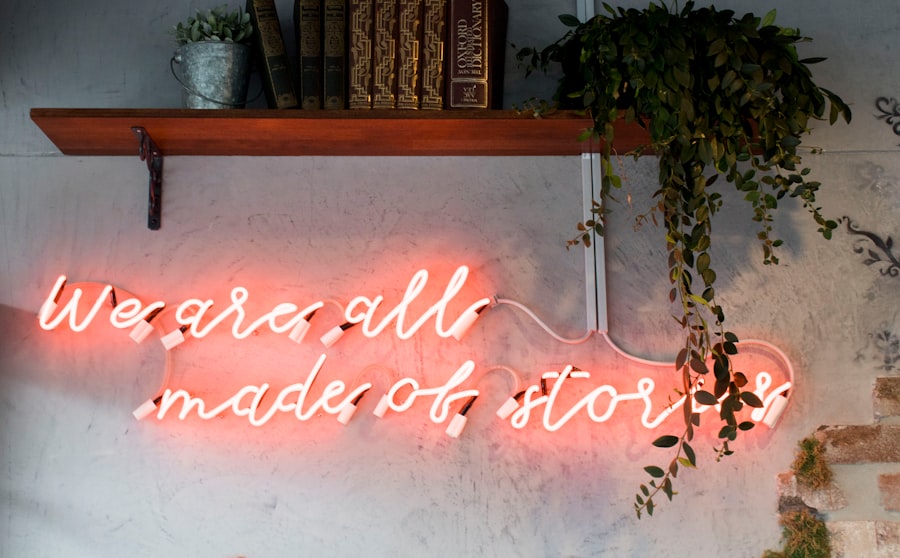Moral dilemmas are an intrinsic part of the human experience, often presenting themselves in various forms throughout our lives. I find myself grappling with these complex situations, where the right course of action is not always clear-cut. A moral dilemma typically involves a conflict between two or more ethical principles, forcing me to weigh my options carefully.
These situations can evoke a range of emotions, from anxiety to guilt, as I navigate the murky waters of right and wrong. The challenge lies in making a decision that aligns with my values while considering the potential impact on others. As I delve deeper into the nature of moral dilemmas, I realize that they often arise in everyday scenarios, whether in personal relationships, professional settings, or broader societal issues.
Each dilemma presents an opportunity for growth and self-discovery, pushing me to confront my beliefs and the principles that guide my actions. Understanding the nuances of these dilemmas is crucial, as it allows me to approach them with a more informed perspective. By acknowledging the complexity of moral choices, I can better equip myself to handle the challenges that life throws my way.
Key Takeaways
- Moral dilemmas are complex situations that require careful consideration of values, beliefs, and consequences.
- Identifying your personal values and beliefs is crucial in navigating moral dilemmas and making ethical decisions.
- Moral situations are often multifaceted and require an understanding of the various factors at play.
- Seeking advice and perspective from others can provide valuable insights and help in making informed decisions.
- Considering the potential consequences of your actions is essential in ethical decision-making and navigating moral dilemmas.
Identifying Your Values and Beliefs
To navigate moral dilemmas effectively, I must first take the time to identify my core values and beliefs. This process requires introspection and honesty, as I reflect on what truly matters to me. I often find that my values are shaped by a combination of personal experiences, cultural influences, and the teachings of those I admire.
By understanding my values, I can create a framework that guides my decision-making process when faced with ethical challenges. As I explore my beliefs, I recognize that they can evolve over time. Life experiences, education, and exposure to diverse perspectives can all contribute to shifts in my understanding of right and wrong.
This realization encourages me to remain open-minded and adaptable, allowing for growth in my moral compass. By regularly revisiting and reassessing my values, I can ensure that they align with my actions and decisions, ultimately leading to a more authentic and fulfilling life.
Recognizing the Complexity of Moral Situations

Moral situations are rarely black and white; they often exist in shades of gray that require careful consideration. I have come to appreciate that recognizing this complexity is essential for making informed decisions. Each dilemma presents unique circumstances, and the factors at play can vary significantly from one situation to another.
As I encounter these complexities, I remind myself to approach each scenario with curiosity rather than judgment. In grappling with moral dilemmas, I often find myself weighing competing interests and values. For instance, I may face a situation where loyalty to a friend conflicts with my commitment to honesty.
In such cases, it becomes crucial for me to analyze the underlying motivations and potential consequences of my choices. By acknowledging the multifaceted nature of moral situations, I can better navigate the emotional landscape that accompanies these decisions and strive for a resolution that honors my values.
Seeking Advice and Perspective
| Category | Metrics |
|---|---|
| Number of Advice Seekers | 100 |
| Number of Perspective Seekers | 75 |
| Success Rate of Advice Implementation | 80% |
| Effectiveness of Gained Perspective | 90% |
When confronted with a moral dilemma, seeking advice from trusted friends or mentors can provide valuable insights. I have learned that discussing my thoughts and feelings with others can help me gain new perspectives on the situation at hand. Engaging in open dialogue allows me to explore different viewpoints and consider alternative solutions that I may not have initially recognized.
This collaborative approach not only enriches my understanding but also fosters a sense of community as I navigate challenging decisions. Moreover, seeking advice from those who have faced similar dilemmas can be particularly enlightening. Their experiences can serve as a guide, offering practical strategies for addressing ethical challenges.
As I listen to their stories, I am reminded that moral dilemmas are universal; we all grapple with questions of right and wrong at some point in our lives. By sharing our experiences and insights, we can collectively navigate the complexities of morality and support one another in our journeys.
Considering the Consequences of Your Actions
One of the most critical aspects of resolving moral dilemmas is considering the potential consequences of my actions. Each choice I make carries weight, impacting not only my life but also the lives of those around me. As I reflect on the possible outcomes, I strive to envision both short-term and long-term effects.
This foresight allows me to make more informed decisions that align with my values while minimizing harm to others. In this process, I often find it helpful to create a mental map of potential consequences. By visualizing how each choice might unfold, I can better assess the risks and benefits associated with different paths.
This exercise encourages me to think critically about my decisions and their implications, ultimately guiding me toward a resolution that reflects my ethical principles. As I weigh the consequences of my actions, I remind myself that taking responsibility for my choices is an essential part of living with integrity.
Reflecting on Your Intentions

As I navigate moral dilemmas, reflecting on my intentions becomes paramount. Understanding why I am drawn to a particular course of action helps me clarify my motivations and align them with my values. When faced with difficult choices, I often ask myself what outcome I genuinely desire and whether it serves a greater good.
This introspection allows me to approach dilemmas with authenticity and purpose. Moreover, examining my intentions helps me recognize any biases or preconceived notions that may influence my decision-making process. It is essential for me to be honest about whether my choices stem from self-interest or a genuine desire to support others.
By cultivating self-awareness in this regard, I can strive for decisions that reflect compassion and empathy rather than mere convenience or personal gain.
Acknowledging the Influence of Cultural and Societal Norms
Cultural and societal norms play a significant role in shaping our understanding of morality. As I navigate moral dilemmas, I must acknowledge how these external influences impact my beliefs and values. Growing up in a particular cultural context has undoubtedly shaped my perspective on right and wrong; however, it is essential for me to remain open to questioning these norms when they conflict with my ethical principles.
I often find myself reflecting on how societal expectations can create pressure to conform, even when doing so may not align with my values. This awareness encourages me to critically evaluate the norms surrounding me and consider whether they serve a just cause or perpetuate harm. By recognizing the influence of culture on my moral compass, I can make more informed decisions that reflect both my individuality and a commitment to social justice.
Exploring Alternative Solutions
When faced with a moral dilemma, exploring alternative solutions is crucial for finding a resolution that aligns with my values. Rather than settling for the first option that comes to mind, I challenge myself to think creatively about potential courses of action. This exploration often leads me to discover innovative solutions that may not have been immediately apparent.
In this process, brainstorming various possibilities allows me to consider different angles and outcomes. I remind myself that there is rarely a single “right” answer; instead, there are often multiple paths that can lead to ethical resolutions.
Embracing Uncertainty and Ambiguity
Moral dilemmas often come with an inherent sense of uncertainty and ambiguity. As I confront these challenges, I have learned to embrace this discomfort rather than shy away from it. Accepting that there may not be a clear-cut answer allows me to approach dilemmas with humility and patience.
It is essential for me to recognize that navigating moral complexities is an ongoing journey rather than a destination. In embracing uncertainty, I also cultivate resilience in the face of difficult decisions. Rather than becoming paralyzed by fear or doubt, I remind myself that it is okay to make mistakes along the way.
Each experience contributes to my growth and understanding of morality, ultimately shaping me into a more compassionate individual. By accepting ambiguity as part of life’s fabric, I can approach moral dilemmas with courage and an open heart.
Practicing Self-Compassion and Forgiveness
As I navigate moral dilemmas, practicing self-compassion becomes essential for maintaining emotional well-being. It is easy for me to fall into self-criticism when faced with difficult choices or when outcomes do not align with my expectations. However, I have learned that treating myself with kindness during these moments is crucial for fostering resilience and growth.
Forgiveness also plays a significant role in this process. When I make decisions that lead to unintended consequences or hurt others, it is vital for me to acknowledge my humanity and extend grace toward myself. By recognizing that everyone grapples with moral dilemmas at some point in their lives, I can cultivate empathy not only for others but also for myself.
This practice allows me to move forward with greater clarity and purpose.
Moving Forward with Integrity and Resilience
Ultimately, navigating moral dilemmas requires a commitment to moving forward with integrity and resilience. As I reflect on the lessons learned from each experience, I strive to carry these insights into future challenges. Living authentically means aligning my actions with my values while remaining open to growth and change.
Resilience becomes a guiding principle as I face new dilemmas in life. Each challenge presents an opportunity for learning and self-discovery; by embracing this mindset, I empower myself to tackle future ethical questions with confidence. As I continue on this journey of moral exploration, I remain committed to living a life rooted in integrity—one where my choices reflect not only my values but also a deep respect for the complexities of the human experience.
In a recent discussion on the “Am I Wrong Here?” platform, a user shared a compelling story about a workplace dilemma that sparked a lively debate among readers.
For those interested in further exploring these intricate social dynamics, you can read more about it in this related article on the “Am I Wrong Here?” website. Check out the full story by visiting this link.
WATCH THIS! 🤯He Said I’m Not Family So I Took His Inheritance: The Ultimate Karma Twist
FAQs
What is the article “Am I Wrong Here” about?
The article “Am I Wrong Here” is a personal story or experience shared by the author, discussing a situation where they question their actions or decisions.
What is the purpose of sharing personal stories in the article?
The purpose of sharing personal stories in the article is to provide a relatable and human perspective on a particular situation or dilemma. It allows readers to empathize with the author’s experience and potentially gain insights or lessons from it.
How does the author navigate the situation in the story?
The author navigates the situation in the story by reflecting on their actions and seeking validation or feedback from others. They may also explore different perspectives and consider the potential impact of their decisions.
What can readers gain from reading the article “Am I Wrong Here”?
Readers can gain a deeper understanding of human experiences and emotions, as well as insights into navigating challenging situations or dilemmas. The article may also prompt readers to reflect on their own actions and decisions in similar circumstances.




